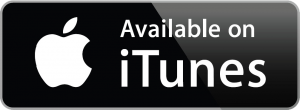How can you dominate your day before breakfast? We’ve all heard of the grandiose benefits of waking up earlier and getting an uber-productive start to the day. But if you’re a night owl by nature, how do you train yourself to get up earlier without feeling tired all the time?
Jeff Sanders knows a bit about this topic: He’s the host of the 5 a.m. Miracle podcast, and author of The 5 a.m. Miracle: Dominate Your Day Before Breakfast. I recently interviewed Jeff to get his advice on making the most of those ultra-productive morning hours, and on forming positive habits in general. (The transcript below has been edited lightly for space and clarity.)
Kevin Kruse: Why should we be waking up at the crazy hour of 5 a.m.?
Jeff Sanders: Well, the good news is that 5 a.m. is an arbitrary time that I made up. It's not a requirement. The reason I chose that time is, my life about six years ago now, I had a full time job, I had a side business that was growing, which is what I do now full time, and I was training for a marathon. I had a very busy schedule every single day. The only time I had to train for my marathon was a run before I got to work. So, a 5 a.m. wake-up call made sense for me.
Then, I discovered this power of early mornings. That could be applied to fitness, it could be applied to work projects, it could be applied to healthy habits of any kind. Once I realized that waking up early gave me this opportunity to get stuff done, then I wanted to stick with that. For me, it's worked out really well to choose 5 a.m. as the ideal time.
You can choose any time that works for you; it's about being intentional with your own life. For most people, if you are awake in the early mornings, if you're alert, your brain is functioning well, then that's a great time to wake up and get something done. Especially if it's a quiet time, the rest of the world is still asleep, or they're still preparing for work. You can actually get great stuff done in that early hour.
Then, if you do dominate your day before breakfast, the rest of your day is that much easier, because you got that stuff done so early.
Kruse: What are some of the tricks to actually getting out of bed earlier, and not just hitting the snooze button?
Sanders: I think the whole process begins the night before.
If you want to have a 5 a.m. wake up call, you should probably be in bed by 9 p.m. For a lot of people, 9 p.m. might sound early. But the reality is, if you have an ideal wake up time, you have to also plan out the number of hours of sleep that you want to get and guarantee you can stop your work and your day, the night before, so you can be in bed and asleep on time.
So, if that happens, if your evening routine is set in place first, then the morning hours are that much easier. The whole process begins with trying to wrap up your day, have a strict evening boundary, prepare for sleep, and actually be in bed. If you follow that simple process, you'll be asleep, you'll wake up the next morning refreshed and ready with no need for snoozing or lots of alarm clocks. You just get out of bed, be excited, and run your morning routine from there. The evening routine really is the key factor there.
Kruse: When it comes to high achievement, you say you don’t believe in annual goals. Why not?
Sanders: I discovered a few years ago that I really was not very good at achieving annual goals–and most people aren't as well. It was one of those realizations that I should be setting shorter term goals, because that's the only thing I can control.
I created a system that I call the quarter system, which is basically just a very simple way of saying that instead of a 12 month goal, my goals are more 12 weeks, or 3 months, or 90 days, however you want to phrase that. Basically, it's saying, set a really short term, a deadline, for everything you're going to plan out. Don't plan anything too seriously beyond that, because it's just too hard to predict how life's going to go that much further in advance.
I know that the goals I have set for myself, right now, are really only for the next couple of months. Beyond that, I have ideas of things I could pursue, but they're not scheduled, they're not guaranteed, they're just ideas for later. With that in place, I can focus exclusively on just the one or two top goals I have right now. By doing that, I get so much more progress done. I can predict my schedule so much better. I have seen such a tremendous improvement in my overall goal achievement process, because I'm not thinking so far in advance, and therefore having the guilt when I don't get a goal accomplished. I'm really trying to say that how can I just focus on what matters most, right now.
Kruse: You write about the power of anchor habits. What are they?
Sanders: Anchor habits are great, because I think that every single person has these key things we do every day.
I define anchor habits as those core habits that tend to happen, whether or not you're doing the things correctly or not in your day that you want to. For example, an anchor habit might be to wake up, go to work, and work out. Those three things tend to happen for most people most of the time. An anchor habit is a thing that is already happening. The question is, if I want to add a new habit, or if I want to change or improve my habits, I'm going to base those new habits off of ones I'm already doing.
For example, if you want to add yoga into your day, you might say, “I'm already going to go for a run. I'll just do a little yoga after the run.” Or if I want to drink more water, I'll do so right after I get up out of bed every morning. You have these core things you're doing, then you can just add on little side, or complementary, habits that add to those.
I think it's a nice way to say, if I want to improve my life, I don't want to reformat everything, I'll make a small change that's already going to be easy for me to do, because I already have some key things in place that I'm already doing.
—
Subscribe:

















